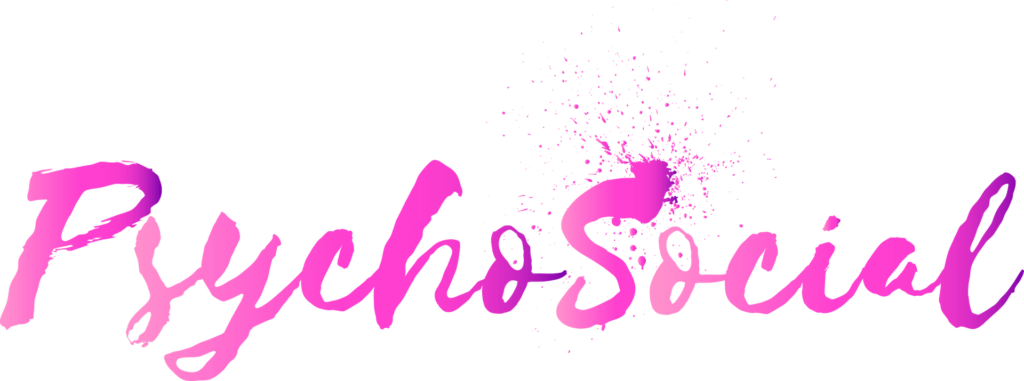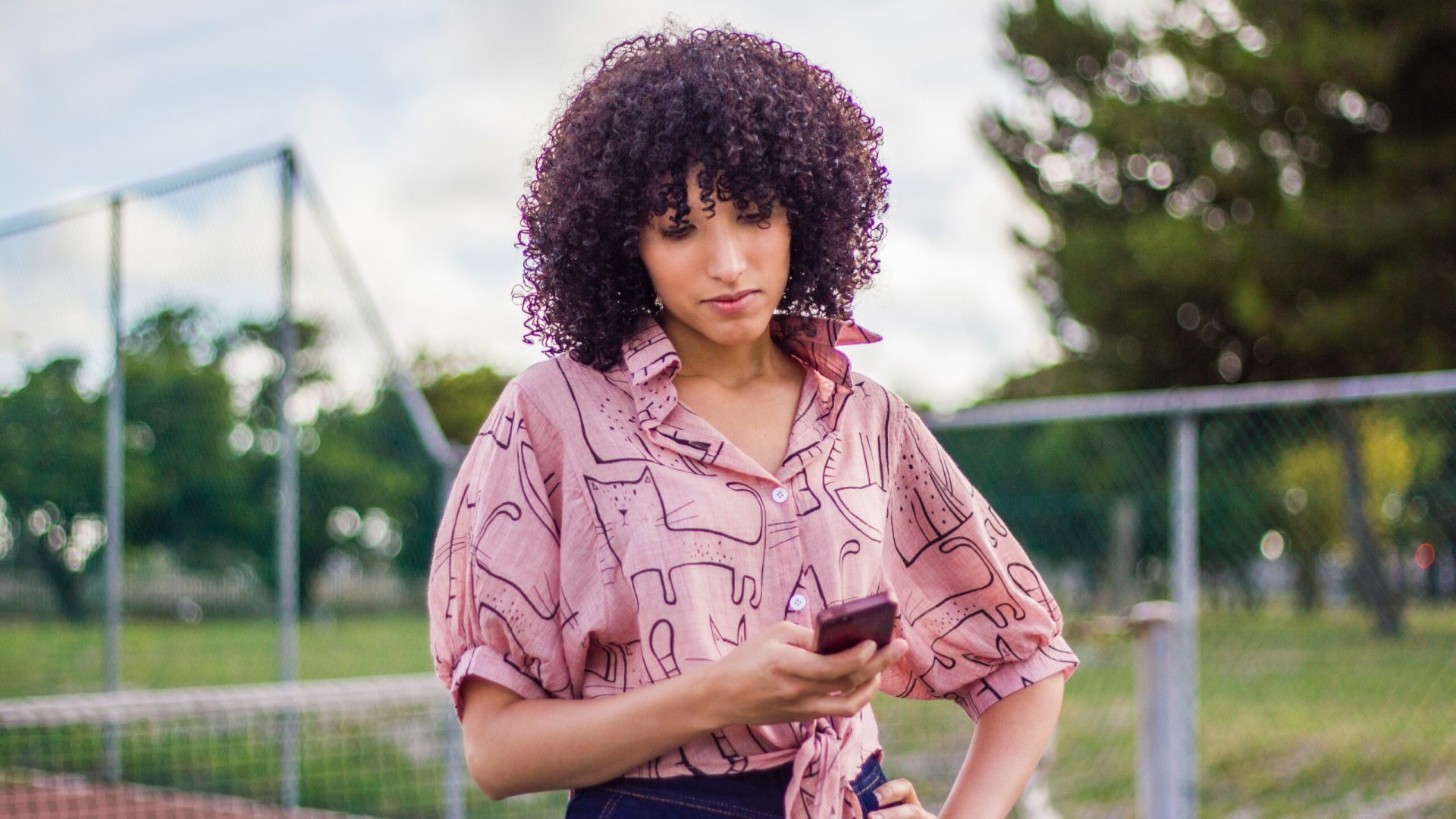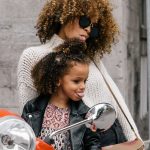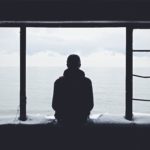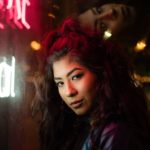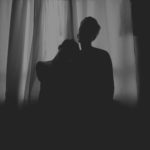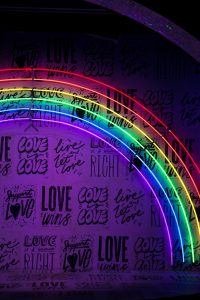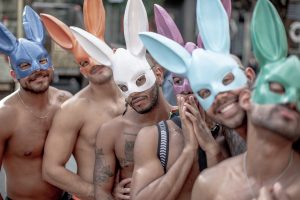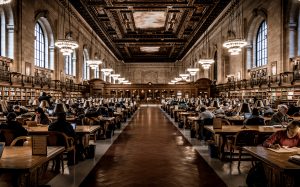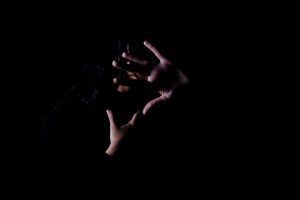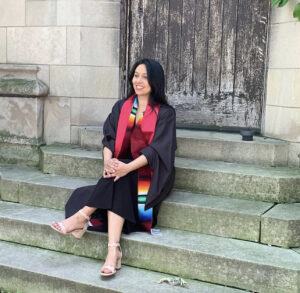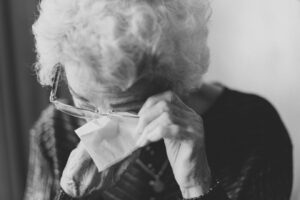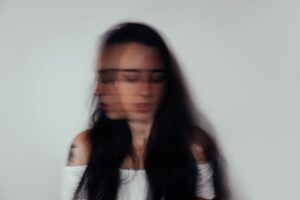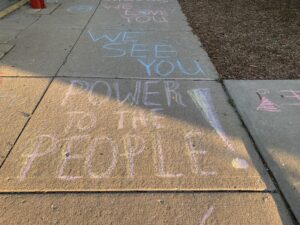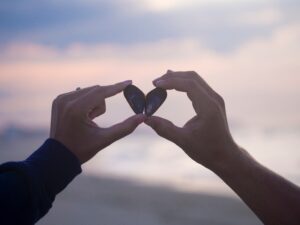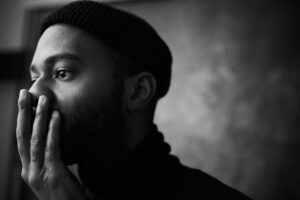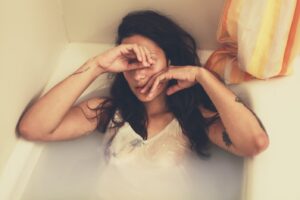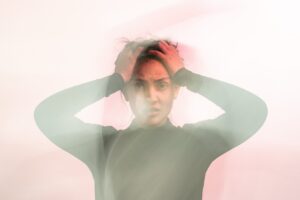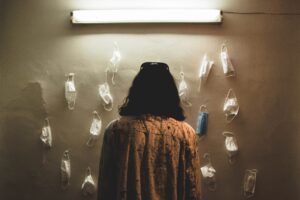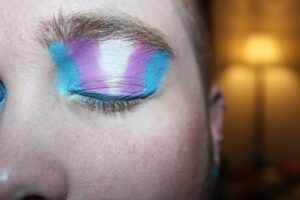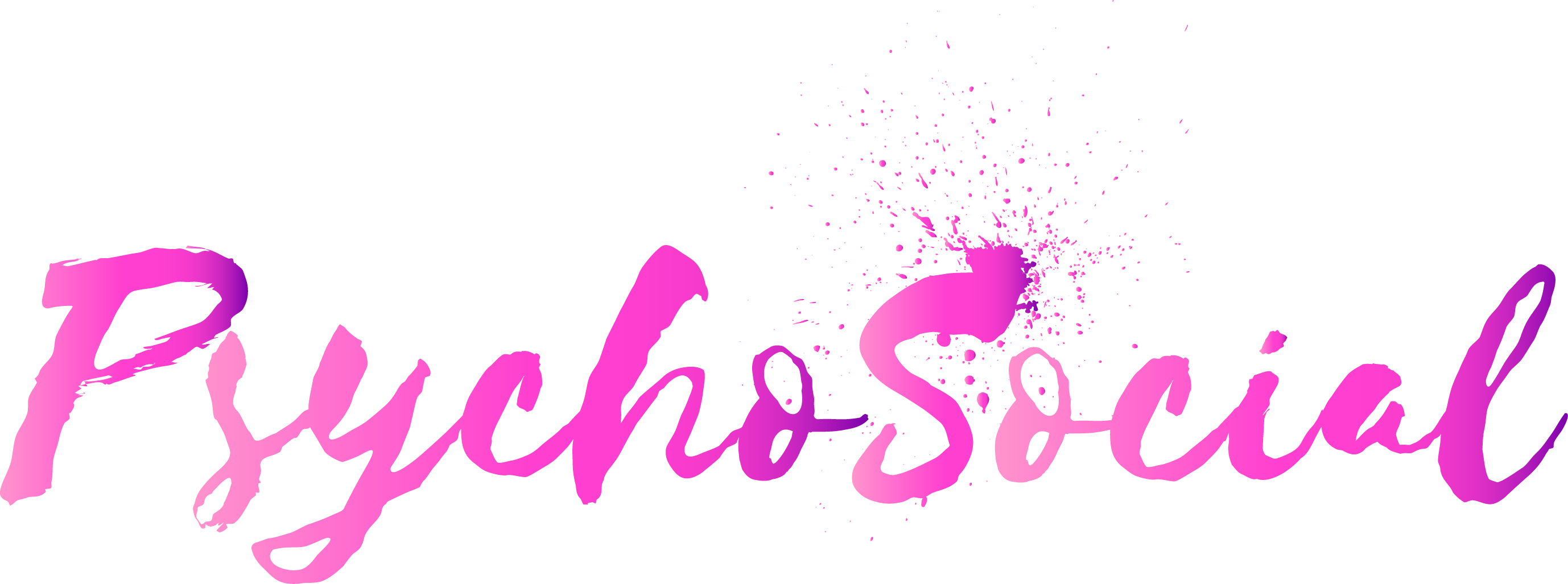Standing in line to wash my hands in the women’s restroom of The Landmark, I had an epiphany wash over me like a limpia. I was surrounded by a couple of dozen women at least. All white. All straight haired. I was the only curly haired woman there. And rather than feeling intimidated or ostracized by newfound fact, I felt emboldened. When it was finally my turn to wash my hands, I took my sweet time; admiring myself in the mirror and shifting curls left and right, shaking my head around to enhance the volume and bounce, but really to take up more space.
I didn’t always feel this way.
In middle school, I was severely bullied. My mom, being a single parent with very little time to tame my frizzy curls, always cut my hair short. But not at all in a cool or stylish way, just short enough to be manageable. Boys weren’t into me because my hair resembled theirs, and girls assumed I was into them because I looked like a boy. When high school came around, I was determined to take matters into my own hands. I convinced my mom to buy me a flat iron, and I’d use that same tool to fit in for the subsequent four years. It was my prized possession, my first class ticket to beauty.
My hair routine demanded I wake up two to three hours early every morning. Wash, condition, squeeze dry, pat dry, blow-dry, press. Blow-dry again and press again. I had several oils and serums and learned how to trim my own hair because paying for such a service was out of the question. Avril Lavigne was my straight-hair queen. I yearned for her straight pin locks that always seemed to be so sleek and shiny. No matter what, I could never achieve her look, but damn if I didn’t try! I never left home without straightening my hair. If the sky looked upset, I’d run for cover for fear that the moisture in the air would unmask the waves and frizz I’d so religiously hid away.
“My most noticeable physical trait is, hands down, my hair. It’s big, unruly and curly, and you can spot it from a mile away… literally.”
-Becca Fitzpatrick
I so distinctly remember the summer of 2009 when I attended the Berklee College of Music Five-Week Summer Performance Program. It was my opportunity to be a new person, and I embraced it! I’d wake up early enough that neither of my roommates ever discovered that my hair wasn’t straight. I told them I was from Los Angeles, not Inglewood. That my mom worked for a school district but never specified that she was a custodian. That my dad was a set designer, not an absent ex-convict. I never spoke Spanish. The girls and boys of Degrassi, Lizzie McGuire, Hannah Montana, Radio Free Roscoe, and Instant Star were the pedigree after which I modeled White-washed Angela. I was meticulous about hiding my cultura. And now I can’t help but feel ashamed about that. So much money, time, and effort were wasted on my insistence of fitting into the homogeneity of Whiteness.
However, the pendulum has swung back. I am blessed to have a marker of my culture and my people and get to wear it like a crown day in and day out. I am letting it grow out and treat it like a plant with every wash. No more heat, no more chemicals, no more forcing it to do anything unnatural. It’s taken quite some time to come into this comfort. A little over a year ago, I cut my hair into a pixie after a stay at a behavioral health center. I figured new me calls for new hair. But the truth is that in cutting my hair, I also cut away a part of myself and my story. And that’s why I am so careful and considerate of my hair now. I have arrived at a place in my healing, where listening to the needs of every facet of my body is necessary if I am aiming to grow.
Wearing my curls proudly combats the erasure of my people.
Caring for my curls is an act of resistance.
My curls are a gift offered by my Creator and sculpting them into anything else is disrespect.
My curls are a representation of my restoration.
No longer do I aim to appeal to eurocentric ideals or expectations of beauty. Every human, in all their individuality, is beautiful and worthy of love and life.
Cover Photo by Liesl Leonard on Unsplash
Born & raised in Inglewood, CA, Angela combines her education and life experience of community inequity, family violence, and mental illness to de-stigmatize mental health.
-
TheHoodSocialWorkerhttps://psychosocial.media/author/thehoodsocialworker/June 5, 2019
-
TheHoodSocialWorkerhttps://psychosocial.media/author/thehoodsocialworker/June 25, 2019
-
TheHoodSocialWorkerhttps://psychosocial.media/author/thehoodsocialworker/July 17, 2019
-
TheHoodSocialWorkerhttps://psychosocial.media/author/thehoodsocialworker/August 29, 2019
